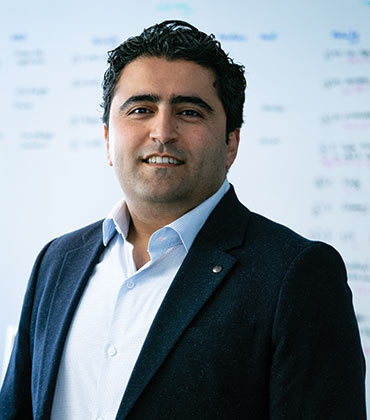This could be attributed to the relative complexity and labor-intensive nature of biogas production and project development. Turnkey project development has led to relative uniqueness and variation amongst biogas projects. Each biogas plant has distinct technology and circumstances that sets each project aside from each other. Organic waste material can have unique properties that quickly change project risks and outputs. In the operational space, most ideal recipes are determined through expensive trial-and error. Keeping track of all these moving pieces can lead to an information overload for industry stakeholders.
Presented with this challenge, anessa has cracked the secret to tackling the complexities of biogas project operations.
anessa has developed specialized software products in the biogas industry. Its team has leveraged data analytics, machine learning, and AI to create specialized solutions. anessa’s robust predictive modeling delivers reports that enable the assessment of a project’s technical, financial, and environmental feasibility. This information can all be presented in easy-to-digest formats. By capturing real-time data from biogas plants, its proprietary software can also run millions of scenarios to accurately determine the optimal operational conditions of existing biogas projects.
We help our clients de-risk their entire biogas project, from project development to operations.
anessa AD•A and anessa AD•O, are designed to leverage intelligent computer algorithms to simplify the complex task of developing and operating biogas projects. anessa platforms, in contrast to legacy software solutions, allow for data-driven decision-making, accelerating the evaluation of projects and assisting in the creation of ideal operating conditions for existing biogas facilities.
anessa AD•A brings clarity to feasibility assessments when biogas project stakeholders are challenged with bringing their ideas of benefitting from their available waste into a tangible business case. The software accounts for feedstocks, GHG emissions, technology, and regional policies to deliver a detailed analysis of the project’s viability. In addition, its user-friendly interface enables decision-makers to simulate multiple scenarios, which ultimately reduces project risk by empowering them to anticipate the effect of variables changing in their original business case.
To tackle the uncertainties of operating biogas plants, anessa AD•O removes the guesswork and simulates operational results by identifying the best scenario amongst millions of possibilities. Primarily catering to operators of existing biogas projects, the simulation engine provides insight on a plant's ideal operating circumstances based on factors like feedstock quantity and availability, operational expenses, and energy prices. AD•O guides operators through a step-bystep process of creating optimal feeding recipes accounting for available feedstock material and desired project results. With this, the software helps maximize revenue by increasing the overall energy production and eliminating the need for expensive trial-and-error experimentation.
anessa’s talented team of biogas specialists, business development professionals, and computer scientists, has collaborated with clients globally. Extending from North America, South America, Europe, Africa and Asia. In one notable partnership, anessa extended its assistance when an energy company was looking to evaluate over 200 projects to decarbonize their gas portfolio with renewable natural gas. With anessa’s AD•A, the energy company streamlined the evaluation of the large volume of projects while maintaining the quality of their assessments.
Thank you for Subscribing to Energy Business Review Weekly Brief
I agree We use cookies on this website to enhance your user experience. By clicking any link on this page you are giving your consent for us to set cookies. More info
